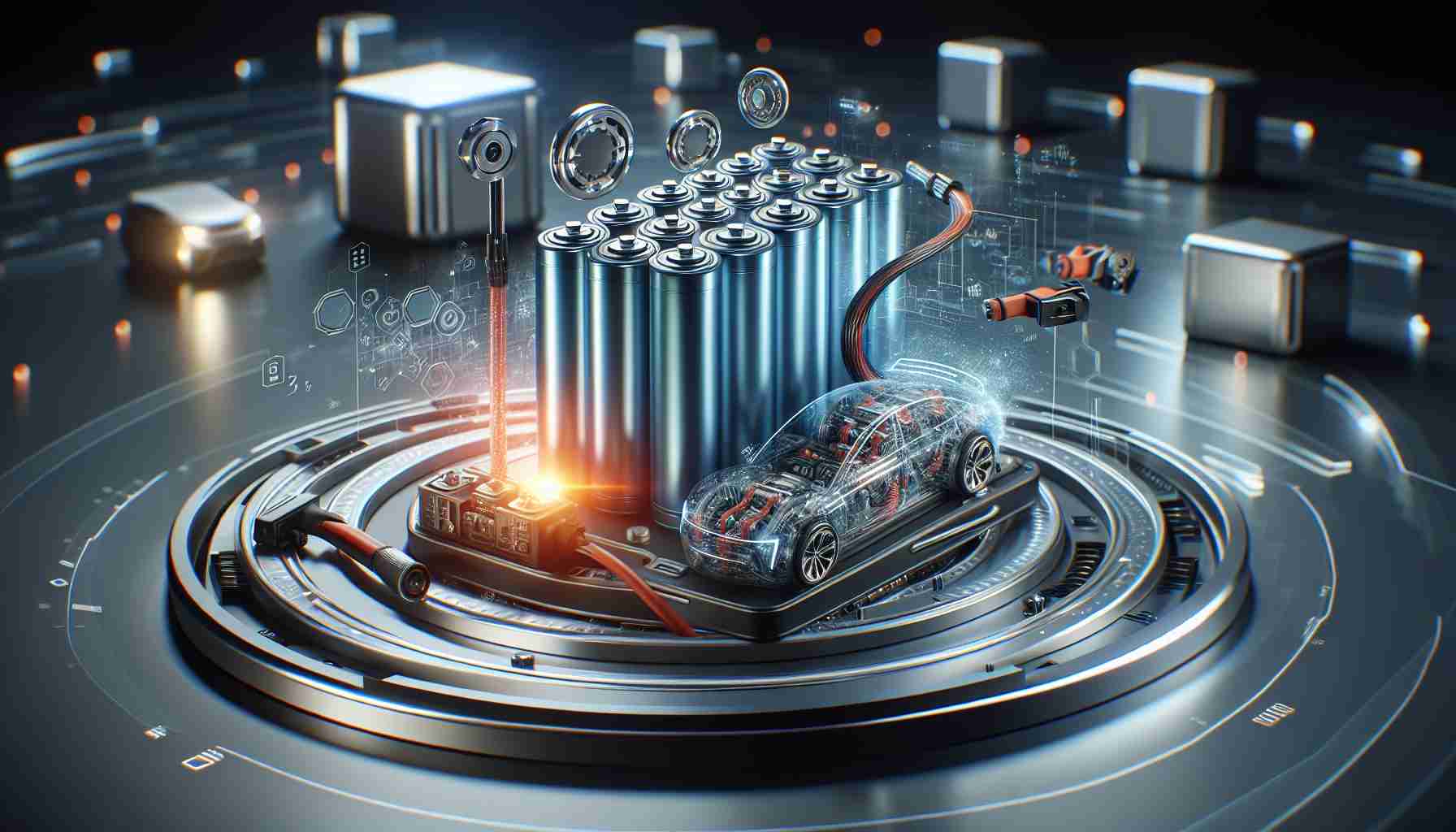Samsung SDI is poised to elevate electric vehicle (EV) technology to new heights with their announcement of EV batteries that will significantly reduce charging times and extend battery longevity. These innovative batteries are set to charge to 80 percent in an astonishing nine minutes, a feature expected to hit production lines in 2026. Furthermore, a long-lasting battery variant with a remarkable 20-year performance life is projected for production commencement in 2029.
The company unveiled these advancements earlier in March, further showcasing them at the 37th Electric Vehicle Symposium & Exposition in Seoul. Among the showcased technologies is an anode-free all solid-state battery (ASB), boasting a 900 watt-hour per liter density. Plans to mass-produce this highly dense battery were also announced for 2027.
Solid-state batteries are anticipated to overtake lithium-ion counterparts due to their superior energy density, swift charging, and enhanced safety features. Samsung SDI has taken measures to ensure these batteries are less prone to fire risks, a prevalent concern in today’s market. They have incorporated specially designed vents that mitigate the risk of thermal runaway by releasing heat and gases during incidents.
Additional innovations on display included new 46-phi batteries and a cell-to-pack (CTP) concept that optimizes energy density while reducing costs, further cementing Samsung’s ambition to dominate the future global EV market.
While Samsung’s advancements in battery technology are remarkable, they’re not the only players in the field striving for excellence. Toyota has announced plans for solid-state batteries with impressive specs, and China’s CATL has developed batteries with rapid charging capabilities. These developments are critical as the world steadily shifts towards electric vehicles, despite some current challenges in the EV market, highlighted by slowing growth and financial pressures observed in major players such as Tesla.
Advancements in EV Battery Technology by Samsung SDI
Introduction
The onset of advancements in EV battery technology by giants like Samsung SDI highlights a major shift in the automotive industry towards more efficient, safer, and longer-lasting energy solutions. Electric vehicles (EVs) rely heavily on the performance of their batteries, and enhancements in this aspect of EV technology can have a significant impact on the adoption and practicality of electric cars.
Key Questions and Answers:
– What are the new battery technologies Samsung SDI is developing?
Samsung SDI is working on an anode-free all solid-state battery (ASB) with a high energy density and a cell-to-pack (CTP) concept to optimize energy density while reducing costs.
– When are these batteries expected to become available?
The anode-free all solid-state battery is expected to be mass-produced in 2027, while the long-lasting battery variant with a 20-year performance life is set to begin production in 2029.
Challenges and Controversies:
The development of advanced batteries confronts various challenges and controversies, such as the high costs associated with solid-state technology, the need for new manufacturing processes, and the supply of materials. Additionally, there are safety concerns related to thermal management and the disposal or recycling of old batteries.
Advantages and Disadvantages:
Advantages:
– Faster Charging: The batteries are designed to charge to 80 percent in just nine minutes, greatly reducing downtime for EV users.
– Longevity: A variant with a 20-year performance life addresses the issue of battery degradation, offering sustainability and reducing replacement costs.
– Energy Density: Improved energy density could lead to lighter batteries or longer ranges for EVs without increasing battery size.
– Safety: Enhanced safety features, such as specially designed vents, make these batteries less prone to fire risks.
Disadvantages:
– Cost: Solid-state batteries are currently more expensive to produce than traditional lithium-ion batteries, potentially affecting the final cost of EVs.
– Manufacturing Complexity: New technologies often require new manufacturing processes that could delay production scaling.
– Material Availability: The availability and sourcing of materials needed for these batteries could pose environmental and economic concerns.
For more information on the developments in the field of electric vehicles and battery technology, you can visit the main websites of companies leading this charge:
– Samsung SDI
– Toyota
– CATL
These links might help you explore further into the advancements of EV battery technology and the companies making significant strides in this domain. As a note, it is important to always check the most recent information as the industry is rapidly evolving and all details are subject to change.
The source of the article is from the blog mivalle.net.ar
